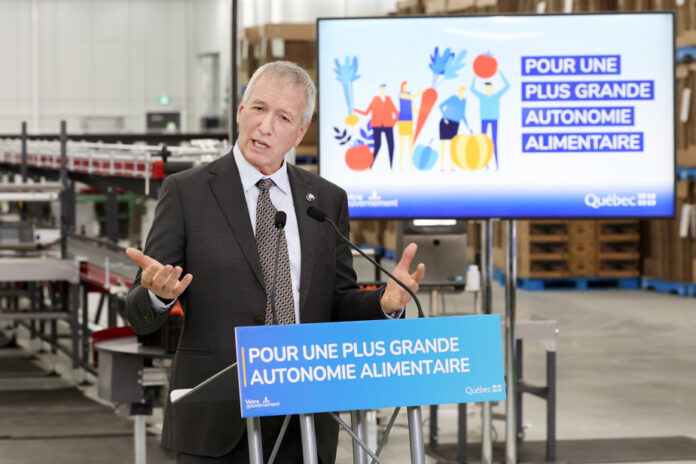(Sainte-Sophie) Quebec is investing $175 million to develop its food autonomy and to improve the productivity of the agricultural sector, François Legault announced on Monday.
The Premier said he was concerned when the borders closed at the start of the pandemic, since 50% of the food consumed in the province comes from abroad.
“I was under enormous stress wondering: ‘if the borders remain closed for a long time, will we be able to feed Quebeckers? “, said François Legault, during a press conference which took place at the same time as the inauguration of the new Serres Savoura, in Sainte-Sophie in the Laurentians.
“Food self-sufficiency isn’t just fancy words. If only for security reasons, there is an urgent need to produce more in Quebec,” he added.
Of the $175 million over five years announced in the last budget, $100 million is being invested to improve robotization in the food processing sector and $45 million is earmarked for the productivity of businesses specializing in plant cultivation. Another 30 million is allocated to greenhouses in order to increase their production areas.
“We had the objective of doubling the area of fruit and vegetable cultivation in Quebec by 2025. In terms of areas, we have reached 55%, but in terms of volumes, we have reached 85%. If we continue like this, we anticipate that we will exceed our objectives, ”said André Lamontagne, Minister of Agriculture, Fisheries and Food. He added that Quebec produces 100% of its lettuces and 90% of its tomatoes and cucumbers.
François Legault has also argued environmental reasons to encourage the production and purchase of local food. “Obviously, when a product comes from far away, it means there has been a lot of transport. And who says transport, says greenhouse gases,” he explained.
During the press conference, the MNA for Prévost, Sonia Bélanger, paid tribute to the founder and former president and director of Savoura, Stéphane Roy. He and his son died in a helicopter crash in July 2019. “For him, eco-responsible cultivation for future generations was one of his priorities,” said Ms. Bélanger.





